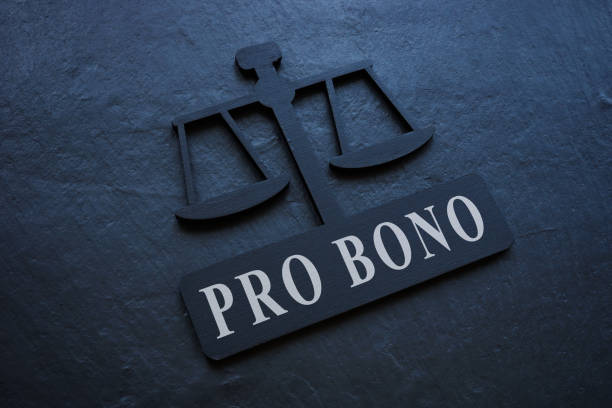Law students must take proactive steps during their college years to gain an edge in a competitive field. By blending academic knowledge with practical experience, students can improve their skills, build professional networks, and boost confidence. Seizing opportunities early can better prepare them for the legal profession.
This proactive approach leads to a deeper understanding of the legal world, setting students apart from their peers. In this article, we’ll discuss how developing real-world experience, building strong relationships, and staying informed about legal trends are essential. By doing so, law students will enter the workforce with a clearer vision and the tools needed to succeed.
Get Involved in Internships and Clerkships
Getting involved early helps students apply their knowledge in real-world settings, build professional connections, and refine their skills. These experiences provide a clearer picture of day-to-day legal work and assist students in exploring different career paths.
Securing an internship or clerkship early in law school enhances employability, clarifies professional goals, and boosts resumes. The experience helps students develop a deeper understanding of how legal principles are applied in practice, making them more competitive.
What are the long-term benefits of securing a clerkship or internship early in law school?
Securing a clerkship or internship early in law school offers long-term benefits, such as gaining practical experience and honing legal skills. Programs like the World Bank Legal Internship Program expose students to real-world legal work, enhancing their expertise in a multicultural setting. Engaging in tasks such as legal research and policy analysis prepares students for diverse legal careers while contributing to global causes.
Develop Strong Relationships with Professors and Mentors

Actively participating in class and expressing genuine interest in professors’ expertise can pave the way for long-term support and mentorship. Strong mentor relationships provide invaluable career advice, help navigate legal opportunities, and serve as strong references for future roles.
Regular communication with mentors allows students to tap into a wealth of knowledge and professional advice, fostering academic and career growth. In addition to these mentor relationships, moot court participation offers significant benefits in advancing students’ careers.
According to the Federal Bar Association, moot court enhances career opportunities by fostering networking, confidence, and peer recognition. Networking with legal professionals through moot court competitions opens doors to internships and mentorships, which are crucial for future success. Furthermore, excelling in moot court competitions adds prestige to a student’s resume, demonstrating legal proficiency and ambition to prospective employers.
What are the best ways to stay connected with mentors after law school?
Stay connected by updating mentors on your career progress, attending networking events, and maintaining communication on LinkedIn. Regular interaction ensures ongoing support and guidance, helping you navigate your career and expand your network within the legal community.
Stay Informed About Current Legal Cases and Trends Around You
By following high-profile cases, legislative updates, and emerging legal debates, students can sharpen their critical thinking and analytical skills. Demonstrating awareness of current legal issues strengthens academic performance while boosting confidence for professional interactions and job applications in law.
Let’s consider the tragic head-on collision that occurred in north St. Louis County on July 5. It resulted in the death of Darrel J. Williams, 52. His Hyundai Sonata collided with a Buick Century on Bellefontaine Road, and Williams was later pronounced dead at Barnes-Jewish Hospital. Meanwhile, the other driver remains in critical condition.
This incident highlights the importance of legal expertise in handling such cases, especially wrongful death claims. Understanding the nuances of such cases can provide invaluable learning opportunities for law students.
A local St. Louis personal injury attorney can analyze cases like this to understand wrongful death claims and legal concepts. Remaining informed about ongoing legal cases and trends is essential for aspiring law professionals.
By following cases like the Bellefontaine Road incident, students gain insights into evolving personal injury laws, enhancing discussions and interview preparation. As TorHoerman Law suggests, future lawyers should offer compassionate, client-centered service, ensuring clients feel heard and supported during legal processes.
Should law students focus more on criminal law or civil law when following cases?
Follow both criminal and civil law cases to gain a comprehensive understanding of the legal system. Criminal law offers insights into justice, while civil law emphasizes dispute resolution, allowing students to explore different facets of legal practice.
Participate in Moot Court and Legal Competitions
Moot court and legal competitions simulate real-world legal scenarios, helping students develop essential skills in research, writing, and oral advocacy. These activities challenge students to refine their arguments, think critically under pressure, and present cases before judges.
They also foster teamwork and improve communication skills. Participating in moot court competitions provides students with valuable experience that mimics professional legal work.
Volunteer and Engage in Pro Bono Work

Volunteering and engaging in pro bono work allows law students to gain practical experience while giving back to their communities. Columbia Law School states nearly 75% of law graduates exceed their 40-hour pro bono requirement, underscoring their commitment to underserved populations. Students assist with important causes such as name-change petitions for transgender individuals, veterans’ benefits applications, and refugee support.
In 2023, students contributed over 26,000 hours of pro bono service, providing vital legal aid across the U.S. and internationally.
These efforts demonstrate students’ dedication to justice and the direct impact of law on vulnerable groups. The chance to participate in these initiatives also strengthens resumes, making students more attractive to potential employers.
Leverage Legal Technology and Tools
Incorporating technology into legal studies provides law students with a significant advantage in today’s digital world. Familiarity with legal research platforms, case management software, and e-discovery tools helps students develop essential skills for modern legal practice.
As highlighted by De Gruyter, leveraging legal technology is increasingly vital for law schools adapting to digital transformations. This shift challenges traditional research methods, policy impact, and curricula, prompting schools to rethink their approach to legal education.
Exploring emerging technologies like artificial intelligence and blockchain in law shows adaptability and innovation, equipping students for the evolving legal field. Legal technology is not just a passing trend; it’s a core part of the future of legal practice. Students proficient in these technologies will be better prepared for future roles in a rapidly changing industry.
Embrace Opportunities Beyond the Classroom
Success in law school goes beyond academics. By seeking out internships, engaging in competitions, staying informed about current trends, and leveraging technology, students can gain a competitive edge. These efforts prepare students for law school challenges and equip them with the skills, experience, and connections necessary for a legal career.


